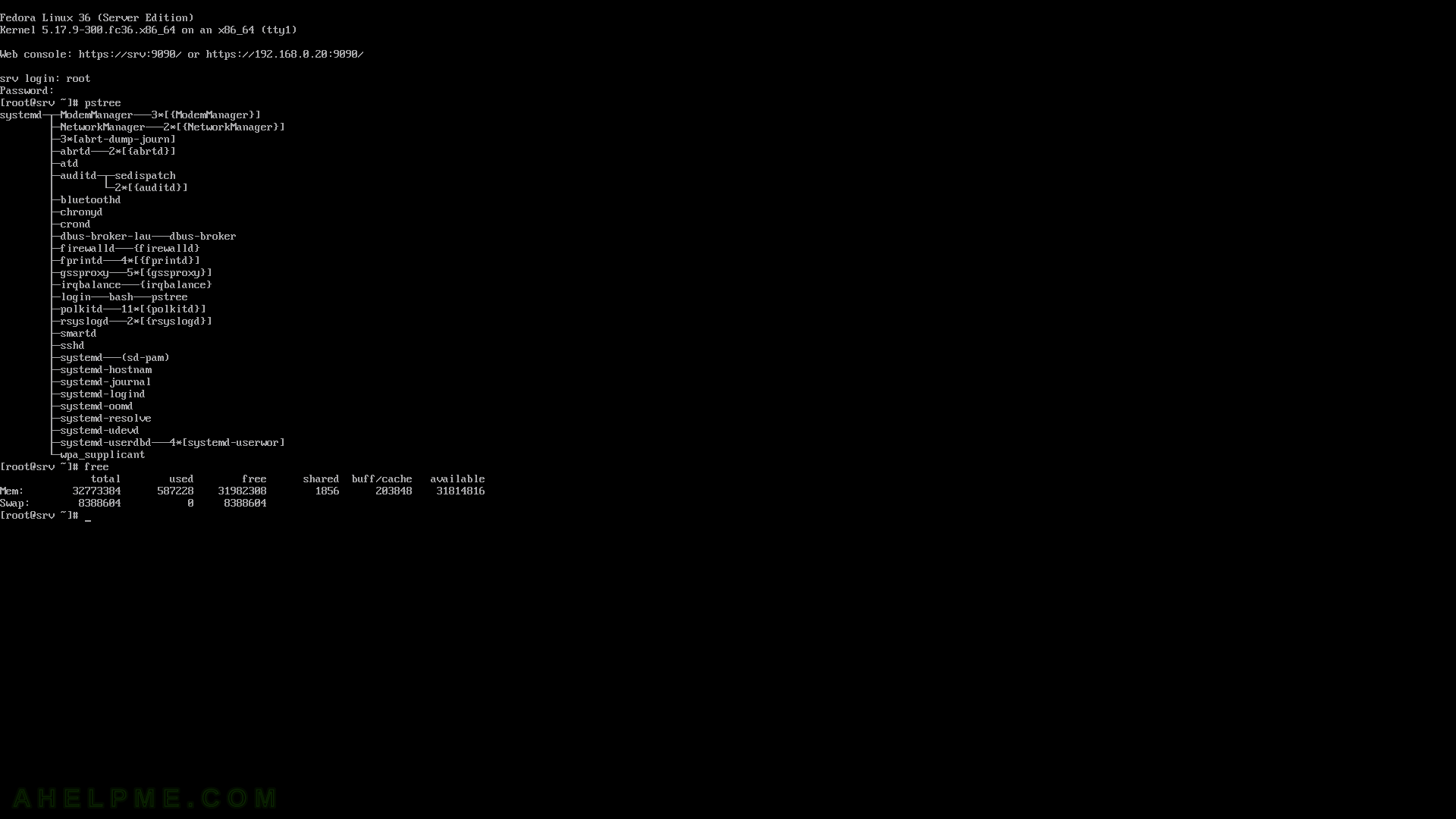SCREENSHOT 21) Select what software you would like the setup to install at first.
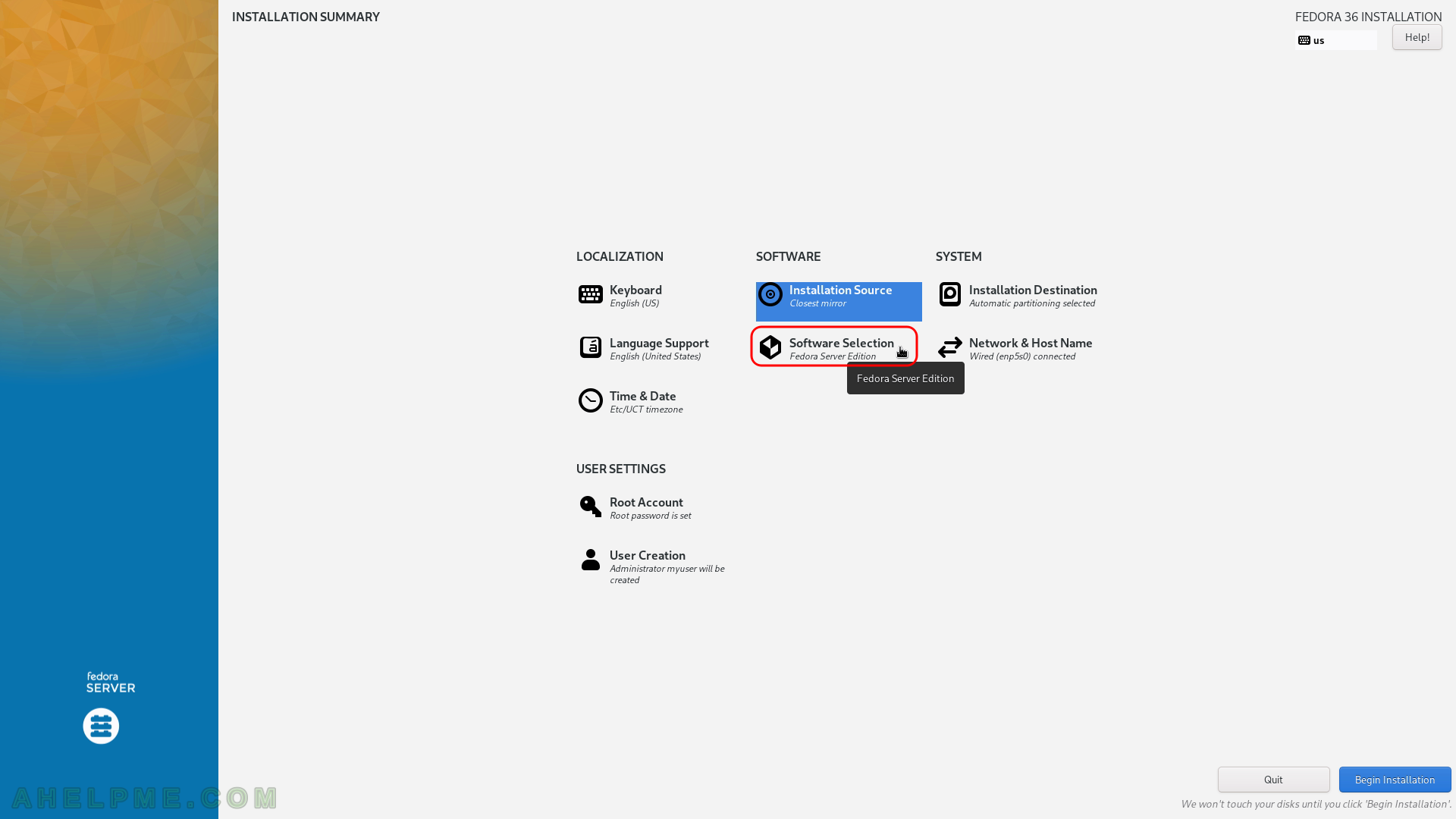
SCREENSHOT 22) By default, it is selected “Fedora Server Edition” and no additional selection in the left.
Leaving it as is, the Fedora 36 Server setup will install only minimal packages for the server edition. On the left the setup shows a list of multiple enironments, which Fedora 36 Server offers with a breaf description for each one. On the first page, there are environments for Container Managment, Domain Membership (Active Diretory Domain), Virtualization, 3D Printing, Administration tools, Audio Production, Authoring and Publishing, C Development tools and libraries, Cloud infrastructure, Cloud managment tools, Compiz, D Development tools and libraries, Design Suite, Development tools, Editos, Educational software, Electronic Lab, Engineering and Scientific, FreeIPA Server, Games and entertainment, Headless managment, LibreOffice and MATE Applications.
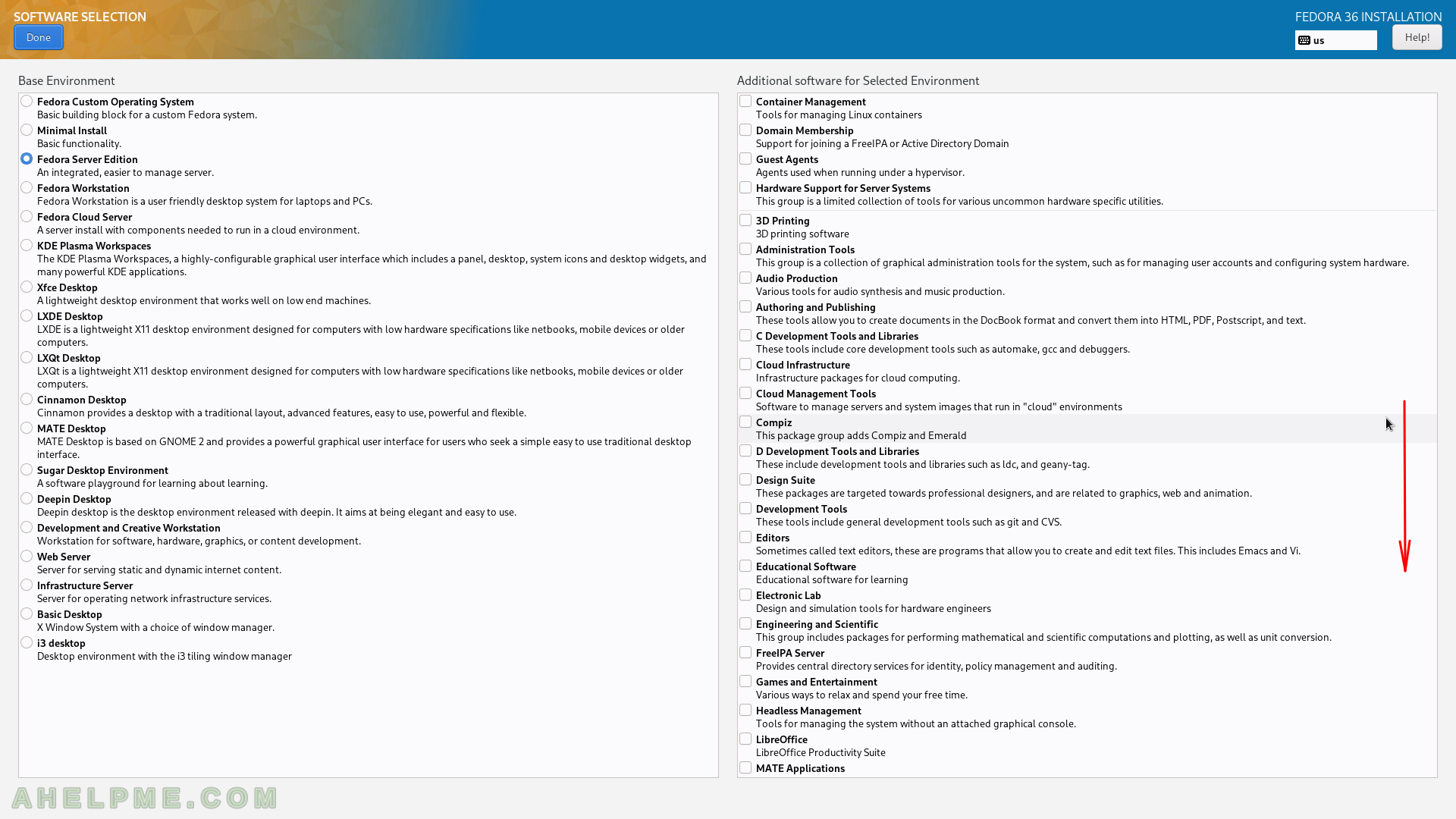
SCREENSHOT 23) Page 2 of software environments offered by the Fedora 36 Server Edition.
On the second page, there are environments for Milkymist and Network servers, Neuron modelling simulators, Office/Productivity, Pantheon Desktop, Python classroom, Python science, RPM Development, Security Labs, Sound and video, System tools, Text-based Internet and Window Managers (simple one, which are not part of a desktop environment).
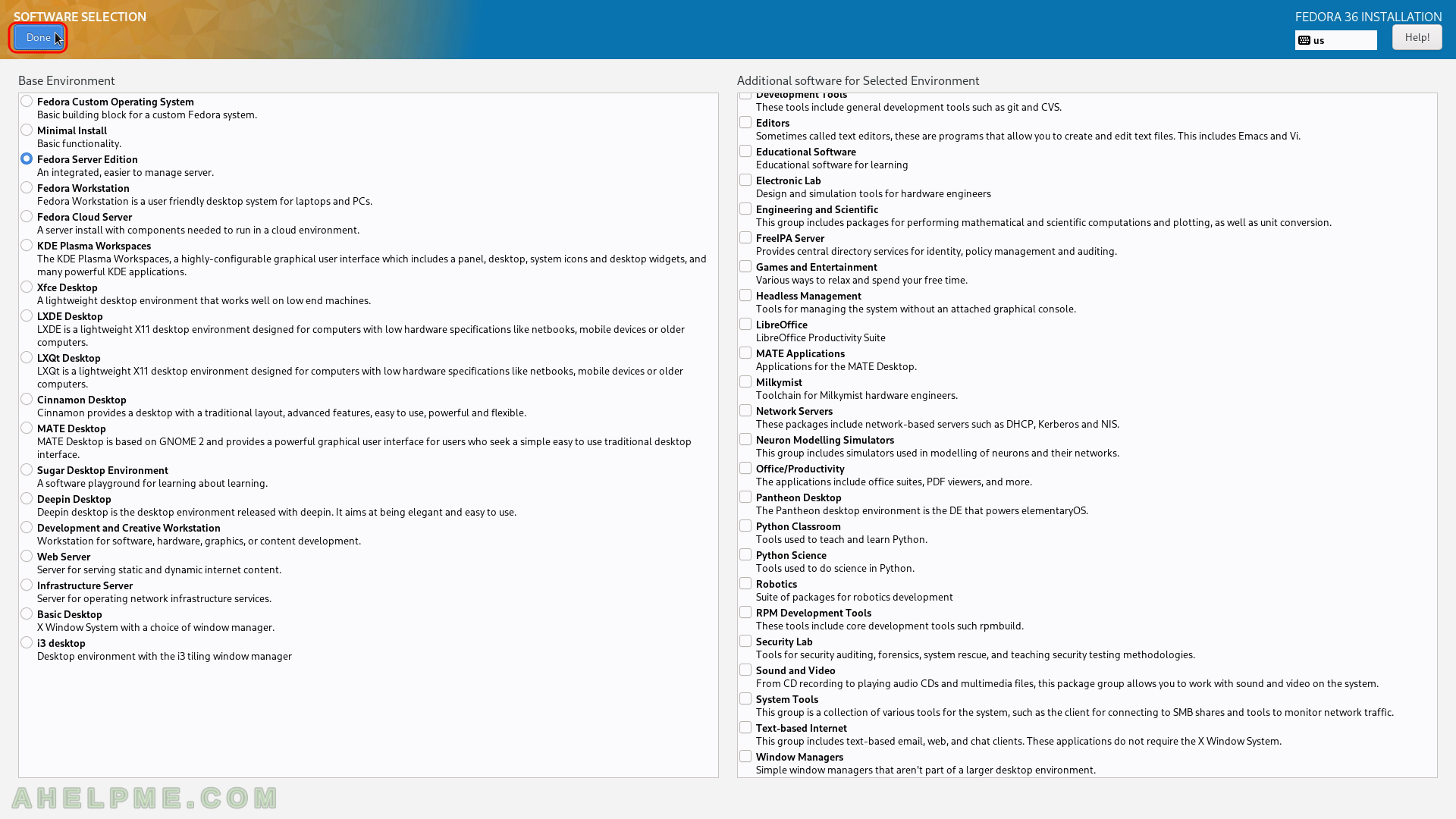
SCREENSHOT 24) Now the installation setup is configured and by clicking on “Begin Installation” the actual installation on your selected hard drive begins.
The actual installation begins and first the disk must be prepared, so after clicking the very button the disk layout will be changed according the last 3 steps.
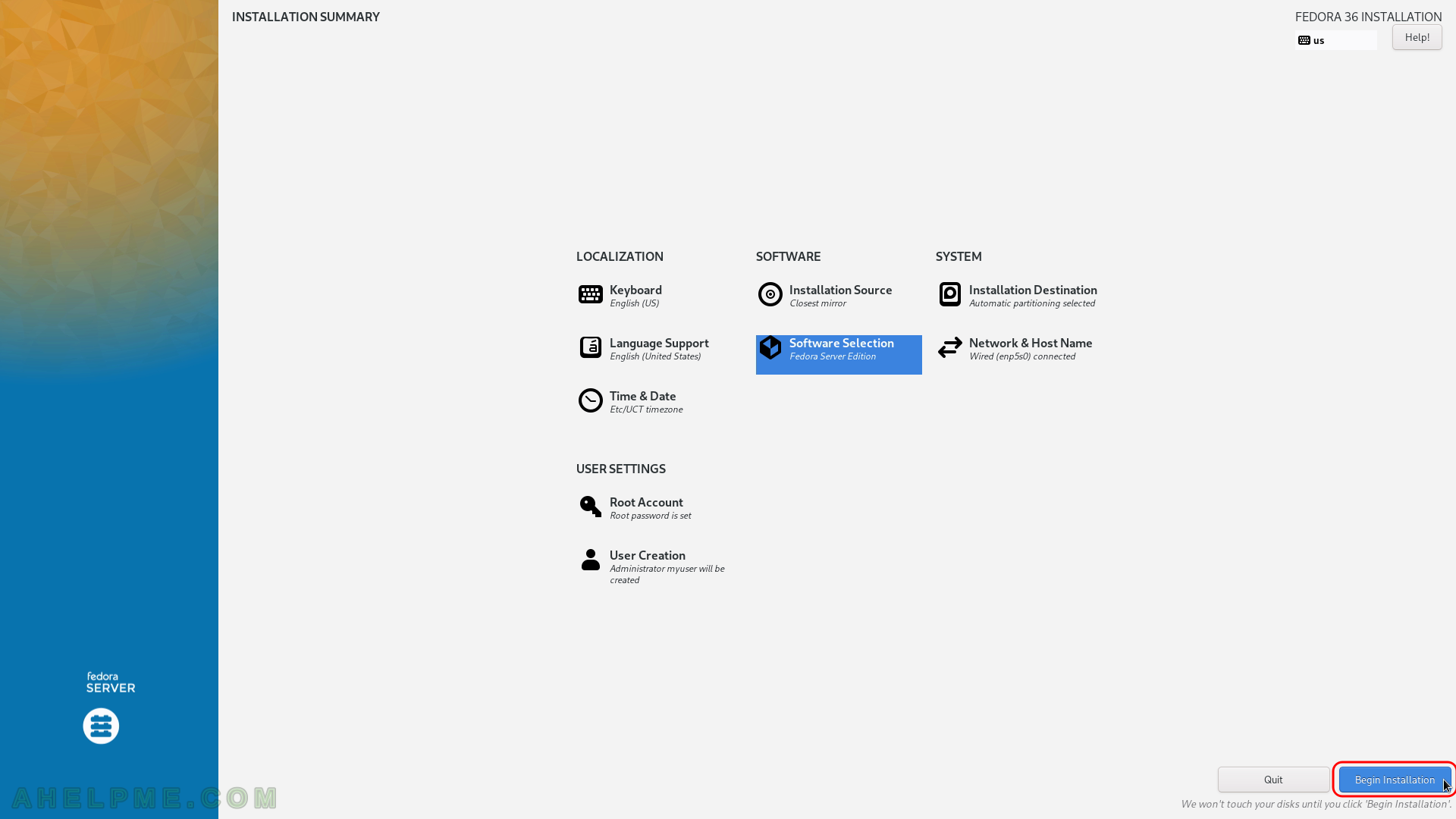
SCREENSHOT 25) The setup is changing the partition layout of the disk.
New partitions are created according to the user selection in the previous step – “Installation destination”.
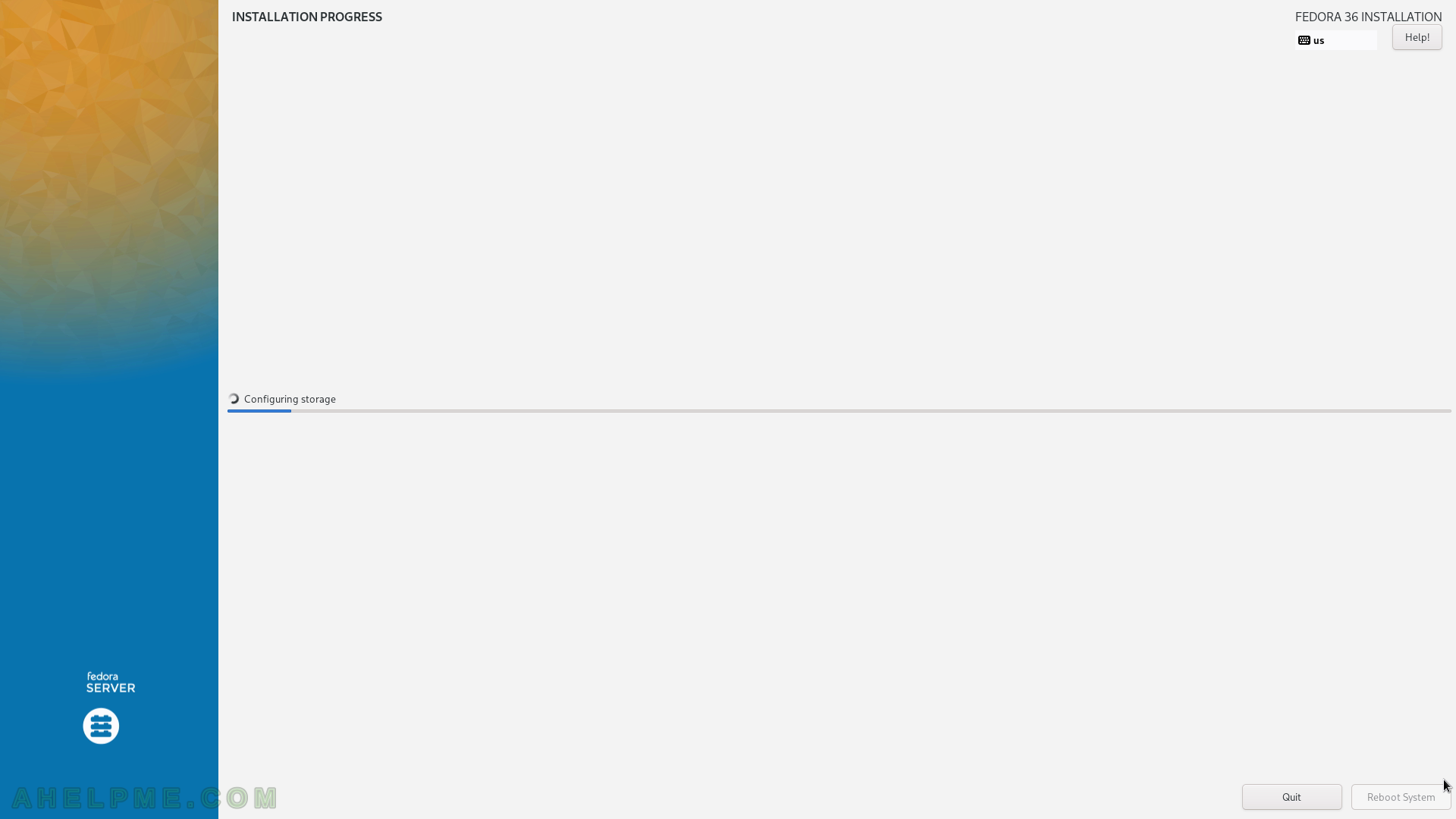
SCREENSHOT 26) The setup is downloading packages.
For the minimal Fedora 36 Server installation 671 RPM packages are downloaded of total 624.27 MiB.
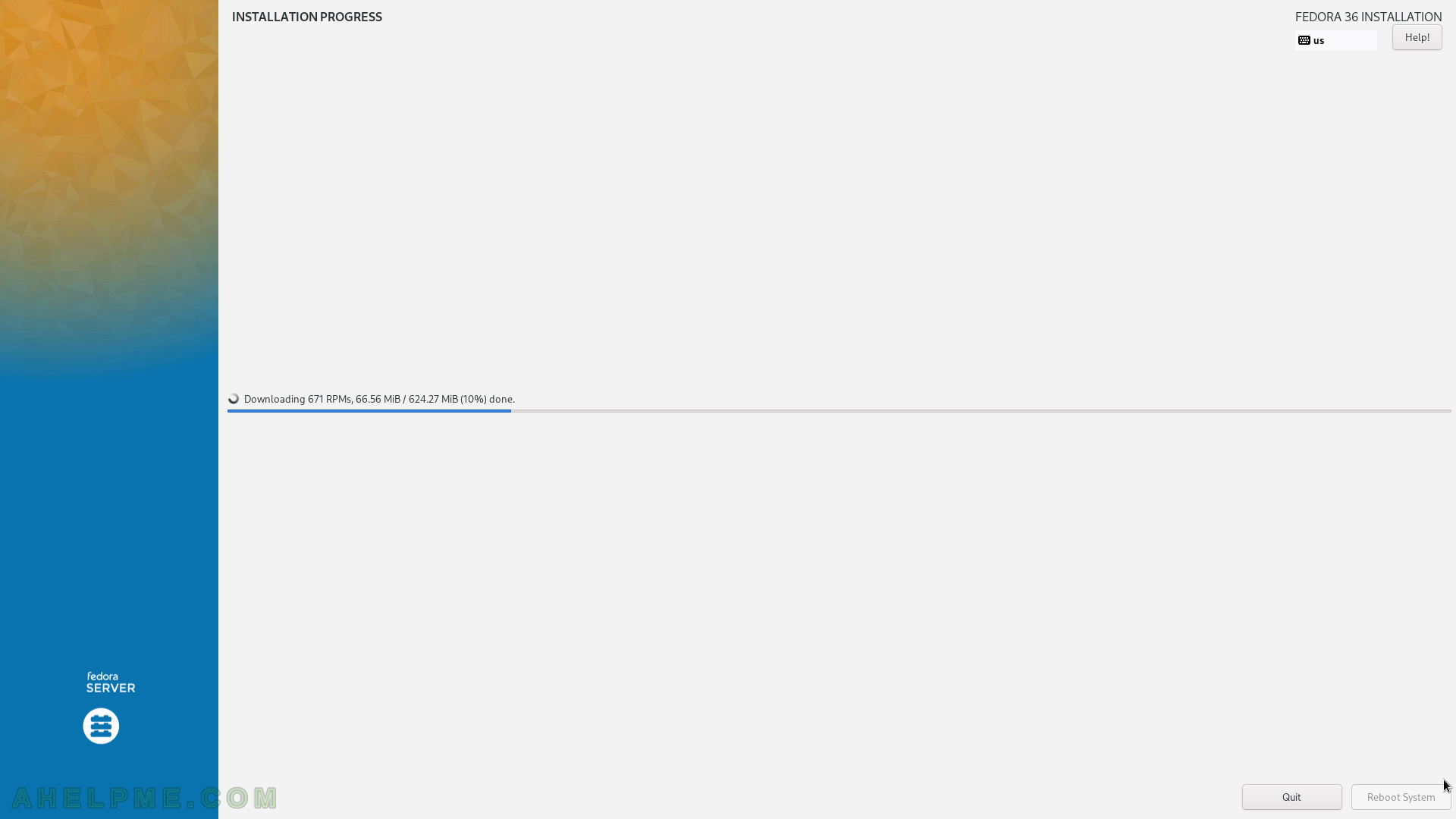
SCREENSHOT 27) The setup is installing packages.
A progress of the package installation is available.
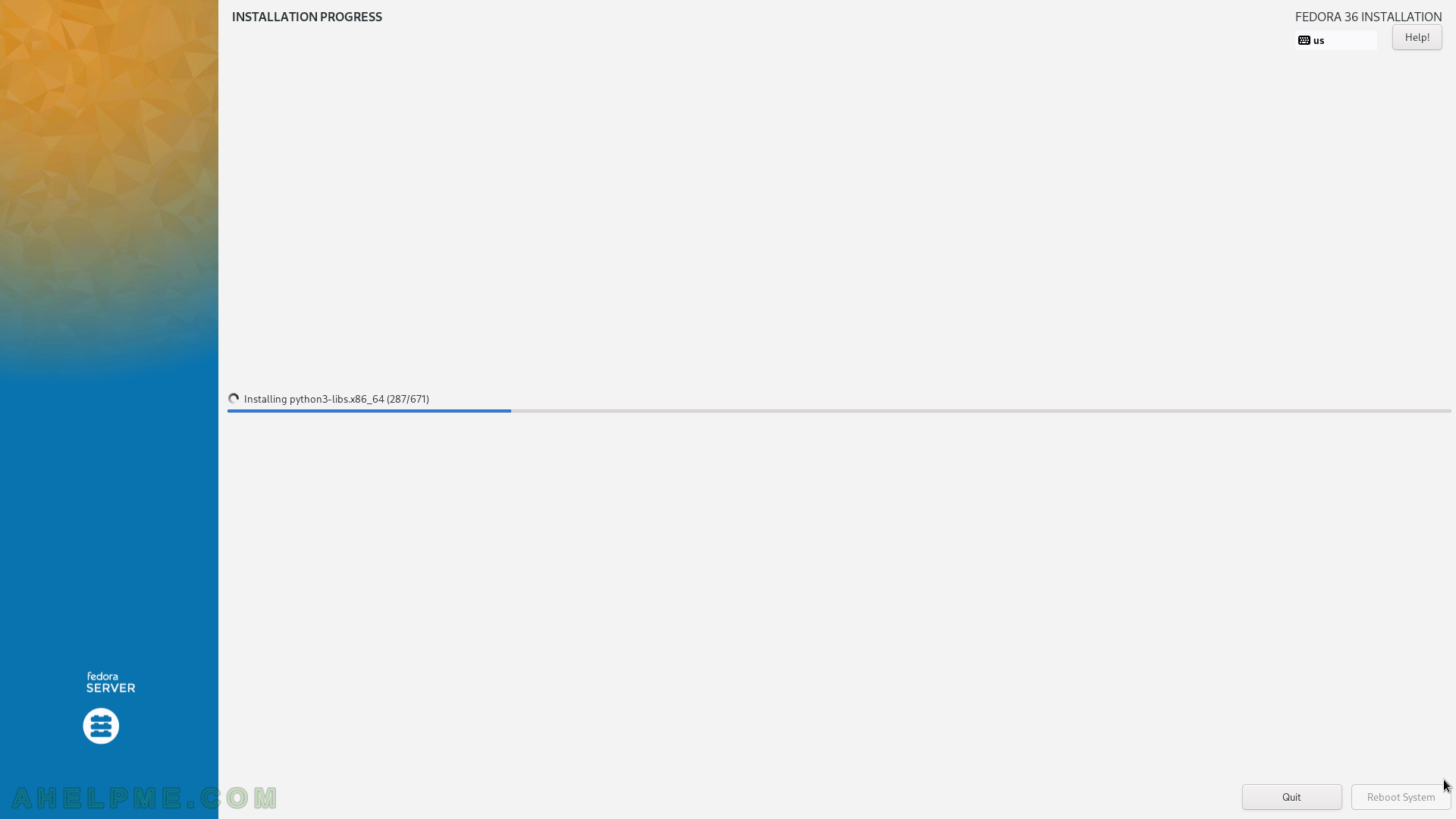
SCREENSHOT 28) The installation of Fedora 36 Server is successful and you may reboot the system by clicking on “Reboot System” button.
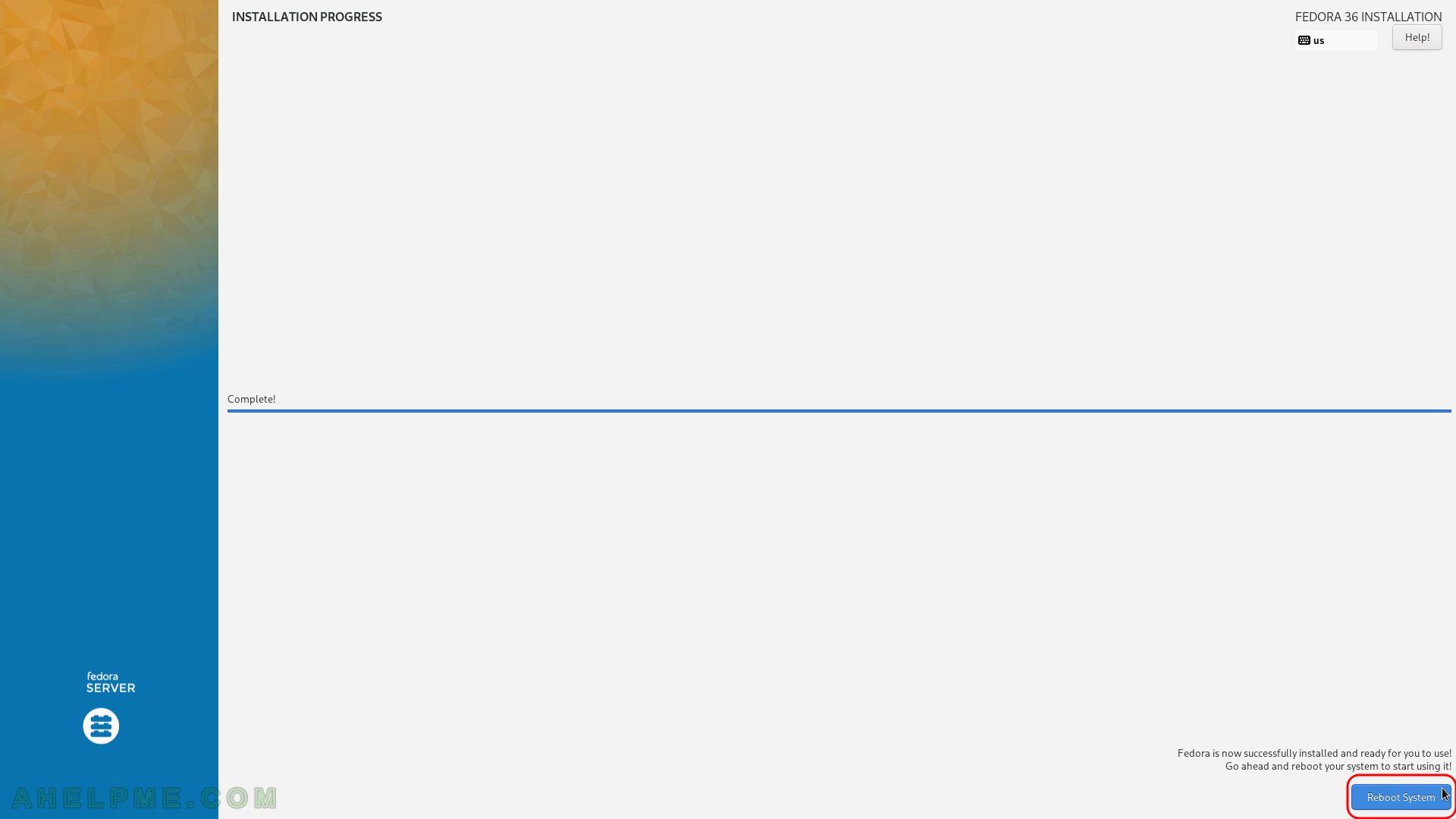
SCREENSHOT 29) Select the system, which to boot. The default is the freshy installed Fedora 36 Server.
Wait for some seconds to boot or just hit “Enter”.
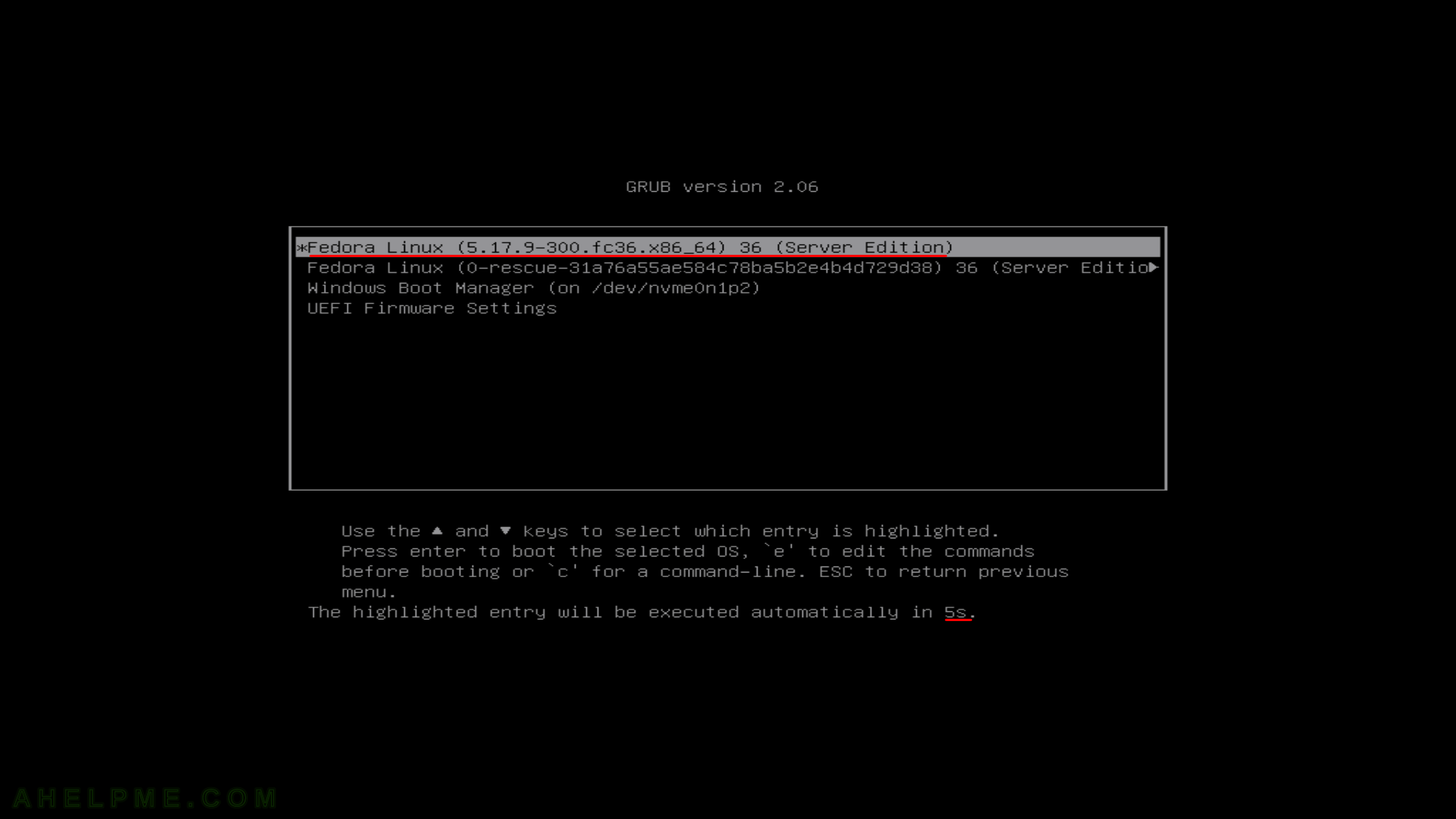
SCREENSHOT 30) The system is up and running and is waiting for logins.
The root user logged and the output of two commands are shown: free for the memory information and pstree for the process tree of the currently running processes.
